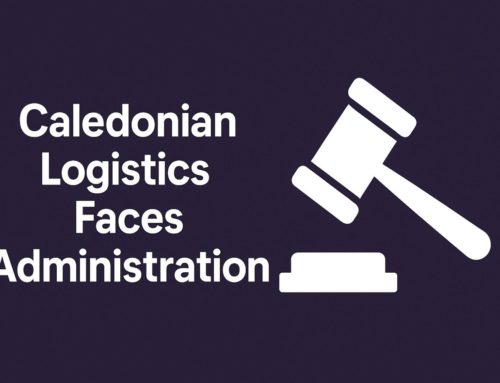In corporate insolvency, the management and disposition of intangible assets like trademarks, patents, and copyrights are important considerations. These intellectual property (IP) rights often hold substantial value and can hugely influence the outcomes of insolvency proceedings. Understanding how these assets are managed during such times is essential for stakeholders, including business owners, creditors, and legal professionals. Properly handling the complexities of IP asset management can determine whether the assets are liquidated efficiently, preserved for future use, or sold to the highest bidder; directly impacting the financial recovery and overall success of the insolvency process.
Intellectual property in the context of insolvency
When a company enters insolvency, all its assets, both tangible and intangible, are assessed and managed to maximise returns for creditors. Intellectual property rights, including trademarks, patents, copyrights, designs, and domain names, are integral to this process. These assets are identified, valued, and, where appropriate, sold to generate funds for creditors. Protecting the value of IP during insolvency is important to prevent depreciation and achieve optimal returns. Plus, securing the IP rights before liquidation can help attract potential buyers or licensees, preserving their long-term value and enhancing the chances of a successful financial recovery.
Trademarks
Trademarks representing a company’s brand identity can retain significant value even during insolvency. Registered trademarks are particularly valuable due to their legal protections. However, the insolvency process can impact this value, especially if the company’s reputation is compromised. To preserve value, liquidators may speed up the sale of trademarks, preventing potential depreciation over a prolonged liquidation period. What’s more, trademarks with strong market recognition or consumer loyalty can command higher prices, making timely management and strategic sale critical in maximising returns for creditors.
Patents
Patents safeguard a company’s innovations and can be pivotal assets during insolvency. The value of a patent is influenced by its remaining duration and its stage in the approval process. Granted patents with substantial time left before expiration are typically more valuable. However, considerations such as annual renewal fees and maintenance costs are important, as these expenses can affect the overall valuation and attractiveness to potential buyers. The potential for future licensing deals or partnerships can also enhance a patent’s value, making it a key asset in securing financial recovery during insolvency proceedings.
Copyrights in corporate insolvency
Copyrights protect original works like software, literary pieces, and artistic creations. Unlike trademarks and patents, copyrights don’t require formal registration, which can pose challenges in establishing ownership during insolvency. Nonetheless, if ownership is attributable to the insolvent company, copyrights can hold substantial value. Proper management and protection of these assets are vital to prevent unauthorised use and to maintain their worth during the liquidation process.
Design rights
Design rights protect the visual design of products and can be either registered or unregistered. Registered design rights offer comprehensive protection, boosting their value during insolvency proceedings. Unregistered design rights, while still offering some protection, may be more challenging to enforce, potentially affecting their valuation and the strategy for their sale or transfer during liquidation.
Domain names and websites
In today’s digital age a company’s online presence, including its domain names and websites, constitutes valuable assets. These digital properties can attract a lot of interest from buyers, especially if they generate substantial traffic or hold strong SEO rankings. Making sure that domain registrations are current and that ownership is established is important during insolvency to prevent loss of value and to facilitate seamless transfers to new owners.
Trade secrets
Trade secrets involving proprietary knowledge like customer databases or unique business processes are vital assets. Maintaining the confidentiality of trade secrets during insolvency is vital to preserve their value. This often involves implementing strict non-disclosure agreements (NDAs) and closely monitoring access to sensitive information to prevent unauthorised disclosures that could diminish the asset’s worth.
Valuation and sale of intellectual property
Accurately valuing IP assets is a key step in the insolvency process. Factors such as the asset’s remaining useful life, market demand, and potential for generating future revenue are considered. Once valued, these assets can be sold individually or as part of a business sale. Proper valuation means that creditors receive fair compensation and that the assets are utilised effectively post-sale.
Licensing agreements
Existing licensing agreements add complexity to managing IP during insolvency. The insolvency of a licensor or licensee can impact the validity and enforcement of these agreements. Liquidators must carefully assess these contracts to determine their viability and potential value, negotiating terms or disclaiming agreements as necessary to align with the goals of the insolvency proceedings.
Preserving intellectual property value
To maintain the value of IP assets during insolvency, proactive measures are needed. Monitoring licensee activities maintains compliance with contractual terms, while vigilance against infringements protects the asset’s integrity. Engaging with relevant authorities such as HMRC to combat counterfeit goods, and making sure that all IP-related documentation is current and accessible, are key steps in preserving asset value.
The strategic role of intellectual property in insolvency proceedings
In corporate insolvency, intellectual property assets like trademarks, patents, and copyrights play a big role in the liquidation process. Understanding their management, valuation, and potential sale is important for maximising returns to creditors and making sure that these assets continue to contribute value in new hands. Stakeholders must approach IP assets with diligence and strategic planning to effectively manage insolvency.
What’s more, the treatment of intellectual property in insolvency proceedings can have broader implications for innovation and market competition. The transfer or dissolution of IP assets can impact ongoing research, disrupt industry dynamics, and influence the competitive landscape. Therefore, policymakers and insolvency professionals must work towards frameworks that balance creditor interests with the need to preserve innovation and maintain market stability.
Ask an expert
Navigating intellectual property during corporate insolvency requires expert guidance. At Leading Insolvency Practitioners, we specialise in managing and maximising the value of IP assets in distressed situations. Our team can provide tailored solutions to safeguard your interests. Contact us today to discuss how we can help you. Call us on 0800 246 1845 or email us at mail@leading.uk.com.






